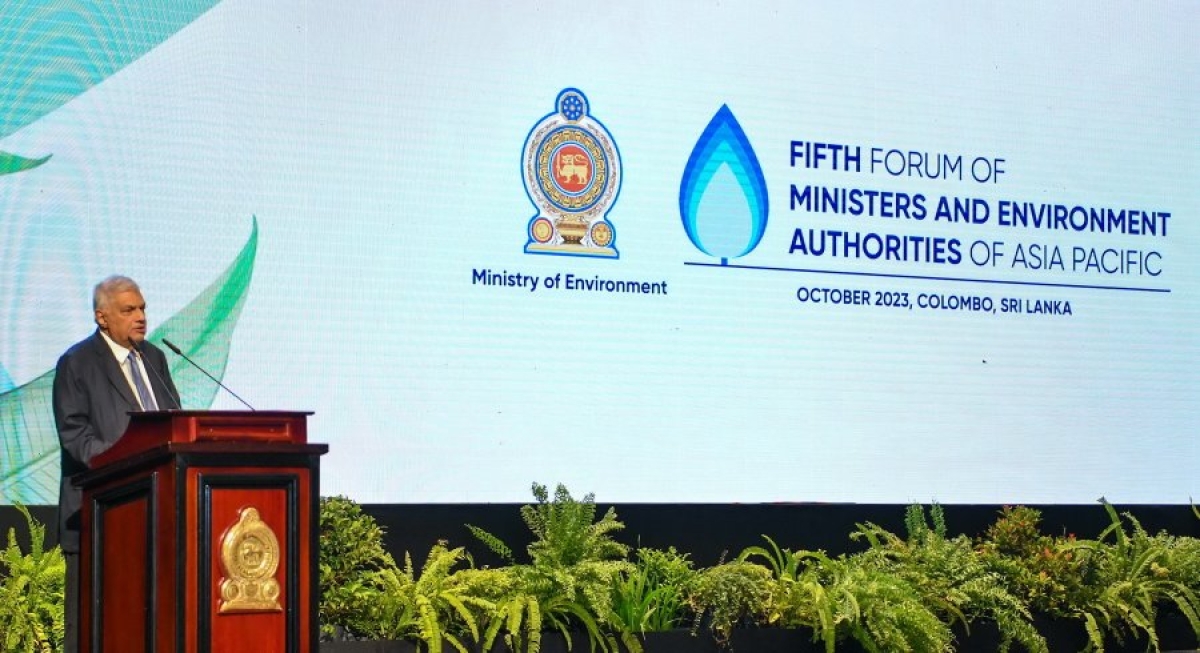In a stark address at the 5th Forum of Ministers & Environment Authorities of the Asia Pacific held at the Shangri-La Hotel in Colombo, President Ranil Wickremesinghe underscored the dire urgency of the climate crisis. He cited alarming projections from the Intergovernmental Panel on Climate Change (IPCC), warning that global warming could reach a perilous 1.5 degrees Celsius between 2030 and 2052, describing it as an "existential threat" to humanity.
The President emphasized the interconnected crises of climate change, biodiversity loss, and pollution, which have devastating impacts on individuals and communities worldwide. Amid these challenges, President Wickremesinghe outlined Sri Lanka's resolute commitment to addressing environmental issues.
He pledged to expedite nature-based solutions, including the promotion of renewable energy, through Sri Lanka's Climate Prosperity Plan, recently launched at COP 27. Additionally, President Wickremesinghe revealed plans to renew the National Biodiversity Strategic Action Plan 2016 to 2022 to align with the objectives of the Kunming-Montreal Global Diversity Framework. An ambitious roadmap for achieving net-zero emissions by 2050, known as the Net Zero 2050 roadmap, is set to be unveiled at COP 28.
Despite Sri Lanka's minor contribution to global emissions (0.03%), President Wickremesinghe reaffirmed the country's commitment to substantial reductions. Sri Lanka aims to achieve a 14.5% reduction in greenhouse gas emissions by 2030, generate 70% of its electricity from renewable sources, attain a 32% forest cover, phase out coal power by 2042, and ultimately achieve net-zero emissions by 2050.
President Wickremesinghe also expressed deep concern over the state of global biodiversity. He lamented that the world has already lost 8% of known animal species, with 22% at risk of extinction due to habitat destruction and invasive species. He warned that biodiversity is disappearing up to 10,000 times faster than it did a century ago, underlining the pressing need for urgent action.










